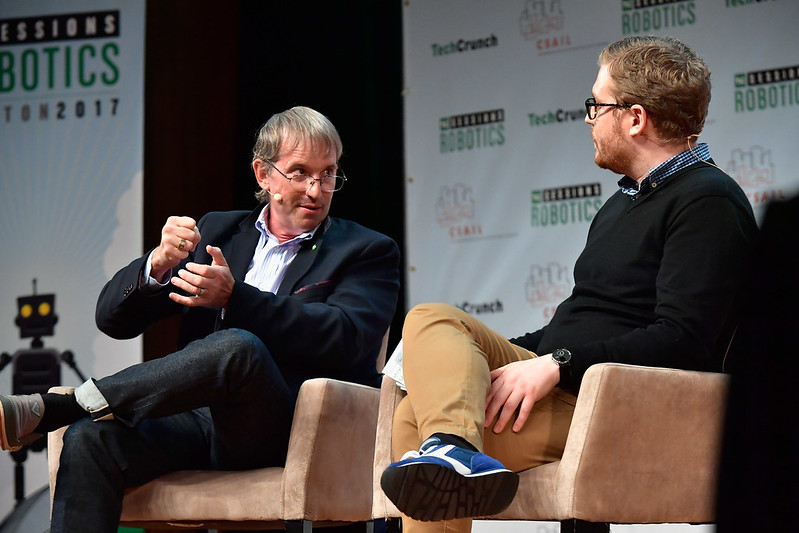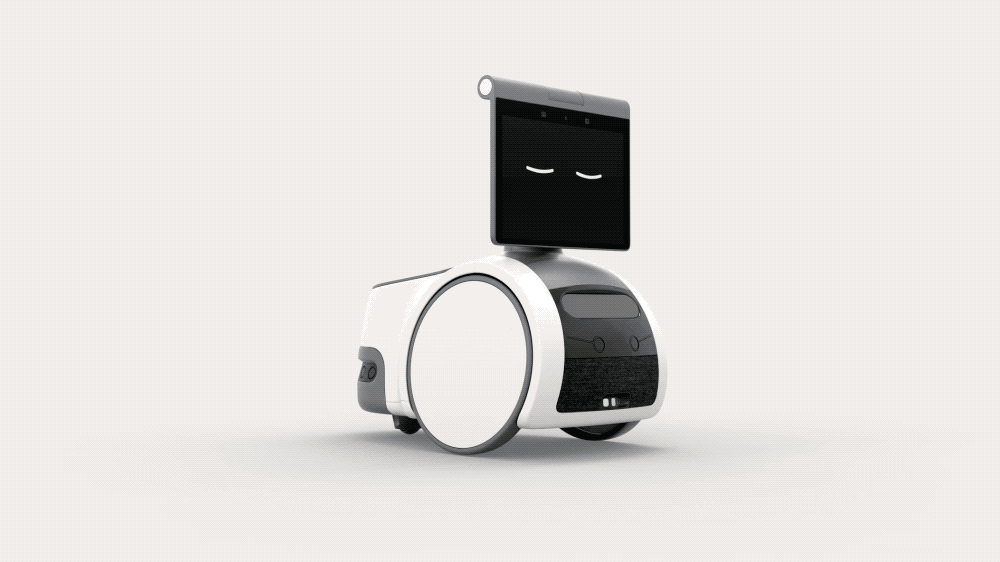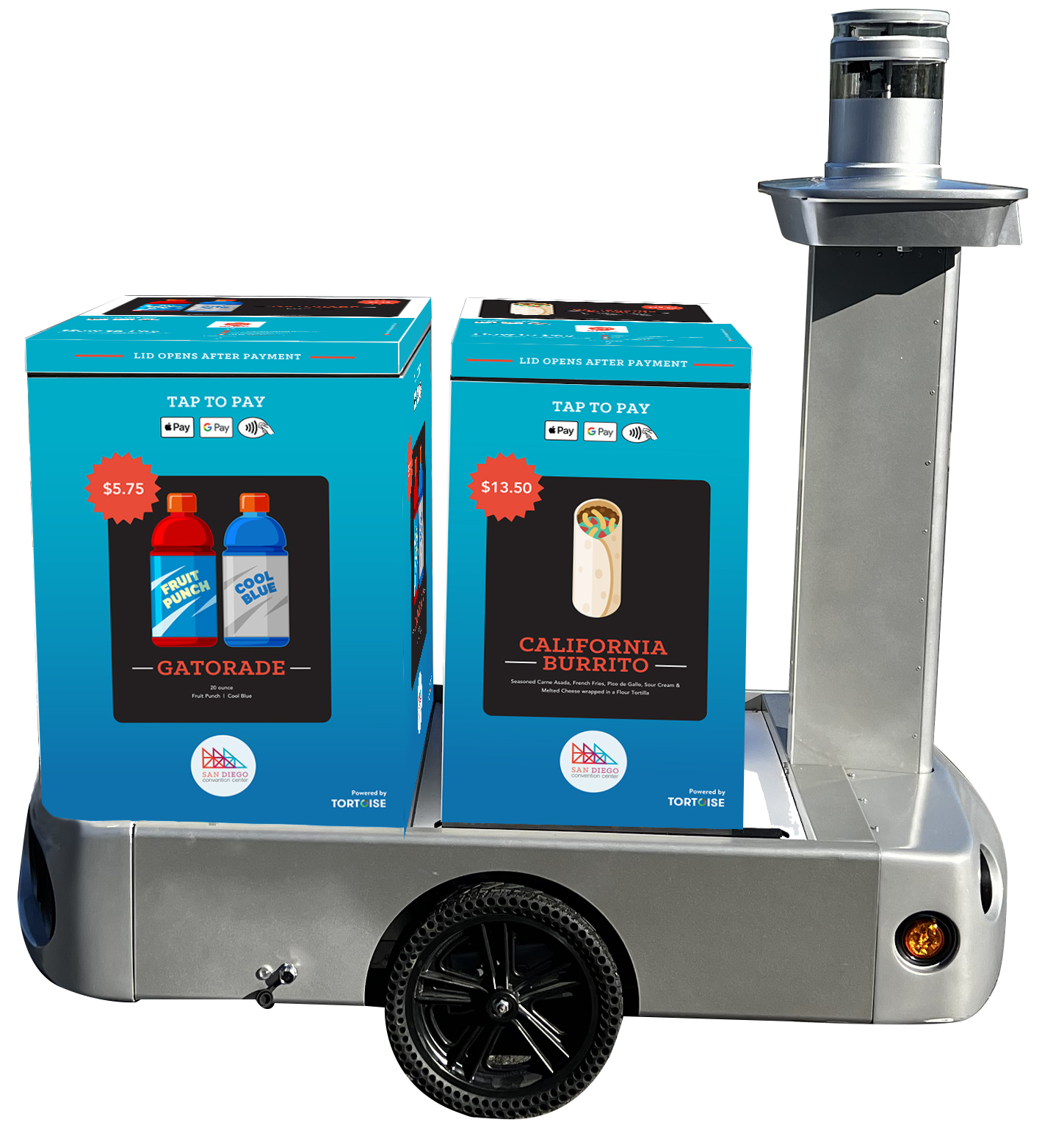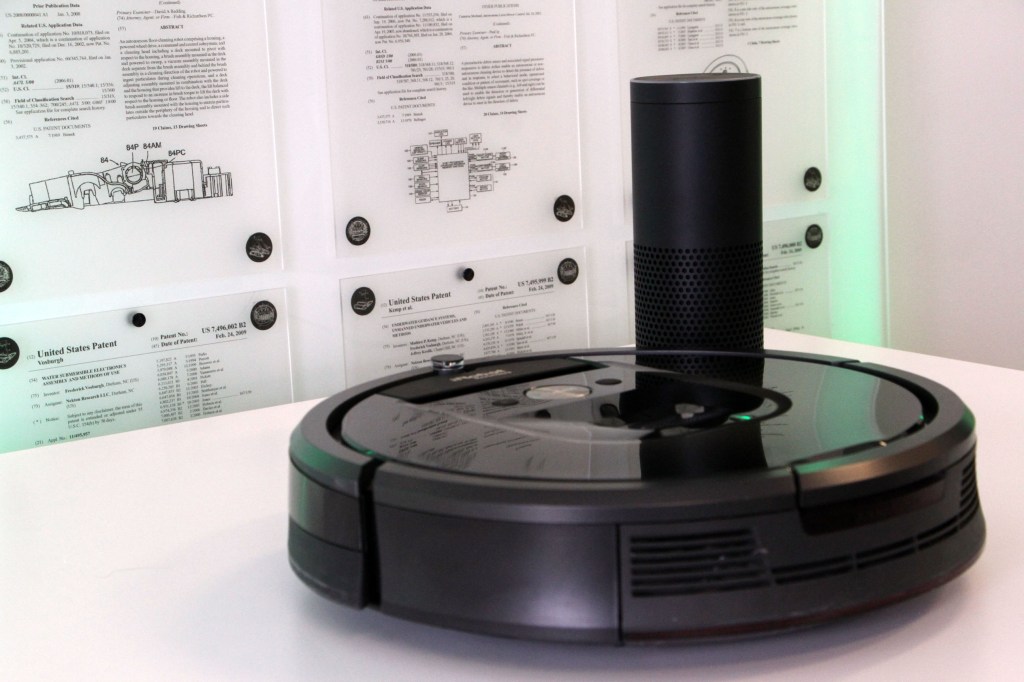Shortly after the Amazon/iRobot news was announced on Friday morning, a colleague asked me if I was surprised. The short answer is yes and no. Yes, in the sense that the news dropped suddenly on what should have been a quiet Friday morning in August. No, in the sense that, of course Amazon is buying iRobot.
Buckle up, because we’ve got a lot to unpack here.
Let’s start with the financial stuff up front. The all-cash deal values iRobot at around $1.7 billion, making this Amazon’s fourth-largest acquisition, following Whole Foods ($13.7 billion), last year’s MGM deal ($8.45 billion) and last month’s One Medical ($3.9 billion). It’s significantly higher than the 2012 $775 million Kiva Systems acquisition (just about $1 billion on the nose in 2022 dollars), but it’s hard to deny Amazon’s getting a lot of bang for its buck, should the deal close as expected.
IRobot saw some strong sales at points over the past couple of years, as the work from home phenomenon resulted in some real nasty carpets, but ultimately its pandemic story was bookended by significant corrections for the Bedford, Massachusetts firm. April 2020 saw the company laying off 70 people and pumping the brakes on the release of its long awaited lawn mowing robot, Terra. Last Friday some more rough financial reporting was drowned out by the Amazon news. This time the company announced plans to lay off 140, amounting to around 10% of its global staff.
The company was quick to distance those two pieces of news, telling TechCrunch, “The reduction in force is completely separate from Friday’s Amazon announcement. Amazon was not involved in iRobot’s decision to reduce its workforce, and the two companies continue to operate independently.”

Obviously the two companies remain separate prior to the acquisition close, but it’s tough to see the news as anything but a company getting its ducks in a row prior to acquisition. That likely means streamlining its roadmap and — unfortunately — cutting a not insignificant number of jobs. As far as whether the Terra will eventually surface, CEO Colin Angle recently told me (semi-helpfully), “What we said in the latest call is that we are working on non-floor-cleaning robots. Interpret that as you will.”
What I think is safe to say is Amazon isn’t buying a company that is at the height of its powers, exactly. And despite the relatively high price tag, I think it’s safe to say the retail giant is getting a good deal here. I’ve seen a lot of headlines note that this deal is “about more than just robot vacuums.” That’s true, of course, but if you read this newsletter, you don’t need me to tell you it’s true.
For one thing, robot vacuums aren’t just robot vacuums. They’re mainstream home robots. Not only that, but in the 20 years (next month) since the first Roomba hit the market, they and their derivatives remain the only meaningful example of home robots. It’s a remarkable thing to say. Two decades, and no one has managed to address that market in a meaningful way. It’s not for lack of trying, of course.
The halls of robot Valhalla are lined with the powered-down corpses of Anki, Jibo, Kuri and their ilk. Each were promising and valiant efforts in their own right. IRobot has its own examples: the gutter-clearing Looj, floor-mopping Scooba and pool-cleaning Verra, for starters. I’d be remiss, too, if I didn’t point out that the 12 years leading up to the Roomba’s release were littered with their own false starts. Angle and co-founders Rod Brooks and Helen Greiner helped keep the company afloat through DARPA contracts, while exploring a range of different commercial products like the “lifelike” Hasbro collaboration, My Real Baby.

The company wears these misfires like badges of honor, maintaining a “museum” of its products just off the lobby of its main HQ. The first time I visited those offices, back in my Engadget days, the company maintained a fenced-off patch of land, where it tested battlefield-ready robot systems that would be spun off as Endeavor Robotics in 2016. In 2019, it spun off its telepresence robots as a startup called Ava, and a year later, Flir acquired Endeavor.
For years, when I’d interview Angle, he’d often tell some version of the joke, “I didn’t become a successful roboticist until I became a vacuum salesman.” It was a good line, and there’s a lot of important takeaways there. First is the value of persistence. Obviously it’s not a luxury every startup has — certainly not in the robotics space. Thankfully, there was the right combination of smart people and government contracts to help keep things running while the company unlocked the purpose-built robot that would turn it into the $1.7 billion company it is today.
When I say the deal wasn’t a surprise, I mean, in part, that iRobot has been getting increasingly cozy with Amazon in recent years. Surface level, it’s Alexa functionality and the company’s reliance on AWS. But things go even deeper; iRobot’s spent much of the past decade (understandably) trying to figure out what’s next for Roomba. In interviews, Angle has laid out a vision for the system as a kind of connective tissue for the smart home. Here’s what he told me in 2017:
Roombas are already becoming one of the commonly found connected devices in the home. The popularity of the Roomba has made it a very powerful ambassador for connected devices, but its ability to organize physical information in the home is making it a central player in allowing homes to be more intelligent. You need to be aware of where things are in order to have a home do the right thing without programming it.

A key to that is mapping, something that’s evolved over the last several generations. It’s precisely the kind of thing that (I think rightfully) sends up some red flags ahead of an Amazon acquisition. I don’t know need to tell you that the company’s handling of Ring privacy issues has left a lot to be desired since that acquisition. What happens when the company controls the systems that are literally generating maps of the inside of your house? I mentioned some of these privacy concerns to an Amazon rep, who offered the following comment:
Protecting customer data has always been incredibly important to Amazon, and we think we’ve been very good stewards of peoples’ data across all of our businesses. Customer trust is something we have worked hard to earn — and work hard to keep — every day.
It’s a form comment, clearly, that comes as some legislators are taking a harder look at the question of Amazon and privacy. As Senator Amy Klobuchar told me in late 2020, “The reason I’m writing HHS is because they should play a larger role in ensuring data privacy when it comes to health, but between the HHS and the Federal Trade Commission, they’ve got to come up with some rules to safeguard private health information. And I think the Amazon Halo is just the ultimate example of it, but there’s a number of other devices that have the same issues. I’m thinking there’s some state regulations going on and things like that, and we just need federal standards.”
Will this deal trigger some regulatory red flags as bodies like the FTC are supposedly taking a closer look at rampant tech mergers and acquisitions? Time will tell, but certainly the question of what happens to the Roomba’s home data under Amazon would make a solid issue for a politician looking to score some points. That said, I’d be surprised if the OneMedical deal isn’t subject to even stronger scrutiny.
There’s some real potential upside for Amazon — and the industry at large. The reasons no one has been able to create a new mainstream home robot over the past two decades are myriad. Resources are certainly one. That’s certainly not a problem for Amazon. After all, a decade after the Kiva acquisition, the company has profoundly transformed warehouse robotics — both its own and the startups that have built a business selling to smaller retailers attempting to stay competitive with its next- and same-day delivery model.

Astro was a promising — if rough — first step into home robots. With iRobot joining the family, Amazon is suddenly the company best positioned to do for the home what it did for warehouses.
Talk about sucking all of the oxygen out of the room, right? I (and everyone else) will have a lot more to say about that in the coming weeks and months. Meantime, let’s get a couple of quick news hits out!
Big round for Geek+ this week. The Beijing-based warehouse robotics firm raised ANOTHER $100 million, as it continues to built international expansion to North American and throughout Europe.
“With the first-mover advantage, Geek+ has already developed a solid competitive advantage in global markets, bringing in a constant driving force for business development,” co-founder and CEO Yong Zheng said in a release. “This, coupled with our three technology pillars of robotics, systems, and algorithms, has not only allowed Geek+ to develop a full product line, but also improve R&D efficiency while reducing R&D costs.”

Oh jeez, another tidbit from Amazon, as the company gives the best look yet at its delivery drones. Ahead of launches in Texas and California, the company discusses some of the safety hurdles, noting, “We developed and validated over 500 safety and efficiency processes, which formed the basis of our Part 135 submission. The FAA also rigorously inspected our drones and build process and practices.”

Meanwhile, while Amazon has been building out its own proprietary army through in-house development and acquisition, Walmart continues partnering with startups. The company has reportedly been piloting the Tortoise mobile robotic vending machines we saw selling burritos at Comic-Con last month. Yes, I have very strong feelings about buying a boxed burrito off the back of a robot while in San Diego.
If you go to San Diego and eat a vending machine burrito from a French food service conglomerate off the back of a robot, you should be permanently banned from the state. https://t.co/h7zhjD3sTD
— Brian Heater (@bheater) July 20, 2022
Meanwhile, it looks like robot chef arm firm, Dexai, raised north of $6 million. The company, which is probably closest to Miso’s Flippy system in terms of functionality, scored a $1.6 million contract to bring its system to military bases earlier this year.

Acquire yourself a free weekly robotics newsletter by signing up here.































Comment